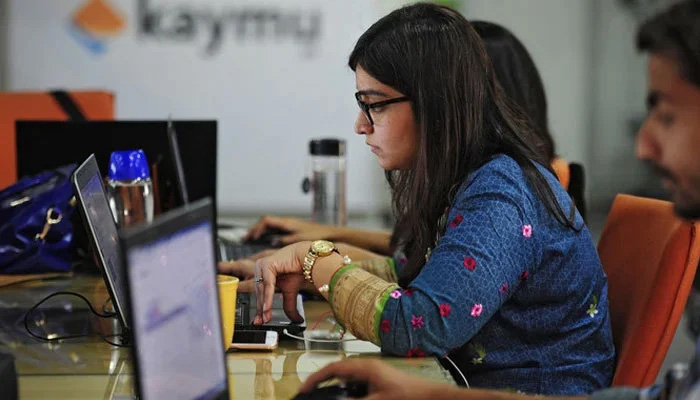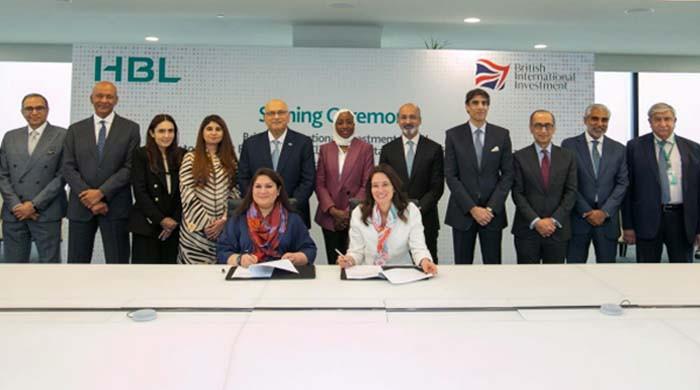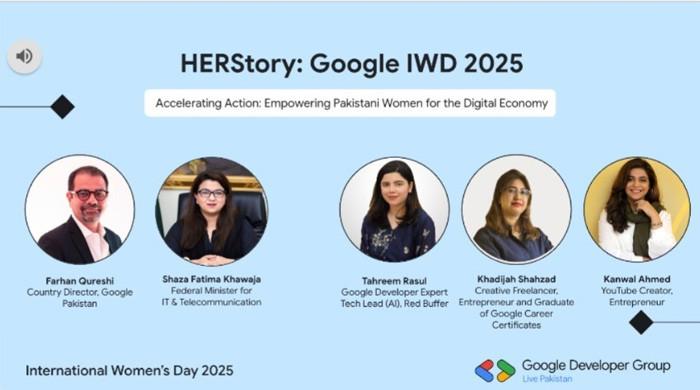Breaking stereotypes
Traditional gender roles often dictate that women focus on household responsibilities rather than pursuing careers.
April 03, 2025

Empowering women in Karachi's workforce is an essential step towards creating a more inclusive and prosperous society. The city has immense potential to lead the way in breaking barriers and challenging stereotypes that hinder women's participation in the workforce. Women make up almost half of the city's population, yet their representation in many industries remains significantly lower than that of men. Addressing this imbalance requires a combination of cultural shifts, policy changes, and community support.
One of the primary challenges women face in Karachi is societal expectations. Traditional gender roles often dictate that women focus on household responsibilities rather than pursuing careers. This mindset limits opportunities for women and reinforces the belief that certain jobs or professions are ‘unsuitable’ for them. Overcoming this requires awareness campaigns and education that emphasise the importance of women's contributions to the economy and society. Families and communities need to recognise that empowering women benefits not just individuals but entire households and neighborhoods.
Workplace environments in Karachi can also pose obstacles for women. Issues like wage gaps, limited access to leadership roles, and harassment at work discourage many women from pursuing or continuing their careers. To address these issues, businesses must adopt policies that promote equality and safety. This includes offering equal pay for equal work, implementing strict anti-harassment measures, and creating opportunities for mentorship and leadership development. Companies that champion diversity and inclusion often perform better financially and socially, making this a smart business strategy as well.
Transportation remains another significant hurdle for working women in Karachi. The lack of safe, reliable public transportation restricts mobility and limits access to job opportunities. Many women rely on private vehicles or ridesharing services, which are not always affordable or safe. Investments in women-friendly transportation options, such as women-only buses or ride-sharing initiatives with safety features, could significantly improve access to workplaces across the city.
Entrepreneurship offers another pathway for empowering women. Many women possess the skills and creativity to start their own businesses but lack the resources or networks to do so. Programs that provide microloans, training, and mentorship can help aspiring women entrepreneurs overcome these challenges. Women-led businesses not only contribute to economic growth but also inspire others to break free from traditional limitations.
Education also plays a major role in empowering women. Providing equal access to quality education and vocational training is essential to equipping them with the skills they need to succeed. This includes encouraging girls to pursue careers in science, technology, engineering, and mathematics (STEM), where their representation has traditionally been low. Educated and skilled women are more likely to enter the workforce and make meaningful contributions to the economy.
Karachi is home to many talented young women who are making waves in various fields and breaking stereotypes. One example is Jehan Ara, a tech entrepreneur and former president of the Pakistan Software Houses Association (P@SHA). She has been a leading advocate for women in technology and has mentored countless young women to enter the tech industry through her initiatives like The Nest I/O.
Another inspiring figure is Mahira Khan, a globally recognised actress and philanthropist. Her success in the entertainment industry has not only elevated Pakistan's image internationally but also inspired young women to pursue careers in the arts despite societal pressures.
In the world of sports, Sana Mir, a former captain of Pakistan's women's cricket team, has shown remarkable leadership and skill, paving the way for other girls to take up sports. Similarly, trailblazers like Zainab Abbas, one of Pakistan's top sports broadcasters, are proving that women can excel in the fields traditionally dominated by men.
Karachi also boasts women like Sheema Kermani, a classical dancer and activist, who has used her art to challenge social norms and advocate for women’s rights. Her work has encouraged many young women to see the arts as a platform for expression and empowerment.
Additionally, numerous young women in Karachi are excelling in academics and entrepreneurship. For example, young innovators from NED University and Karachi University have contributed to groundbreaking projects in STEM fields, while others are launching successful startups, such as those focused on fashion, digital marketing, and sustainable products.
Breaking stereotypes requires collective effort. Media, educational institutions, and community leaders all have a role to play in challenging outdated norms. Portraying women as strong, capable, and independent in films, advertisements, and public messages can gradually change societal attitudes. Similarly, schools and universities must create an environment where young men and women learn the value of mutual respect and collaboration.
The government also has a responsibility to create policies that support women’s empowerment. This includes enforcing labour laws, offering incentives for the companies that promote gender diversity, and providing childcare facilities to help working mothers balance their professional and personal responsibilities. Collaboration between the public and private sectors can lead to sustainable solutions that benefit everyone.
Karachi's progress depends on its ability to harness the potential of all its citizens. Empowering women in the workforce is not just a matter of fairness; it is a strategic necessity for economic growth and social development. By breaking barriers and challenging stereotypes, Karachi can set an example for the rest of Pakistan and the world. When women thrive, communities prosper, and the city moves closer to realising its full potential.
The writer is a seasoned journalist and a communications professional. He can be reached at [email protected].
Disclaimer: The viewpoints expressed in this piece are the writer's own and don't necessarily reflect Geo.tv's editorial policy.











